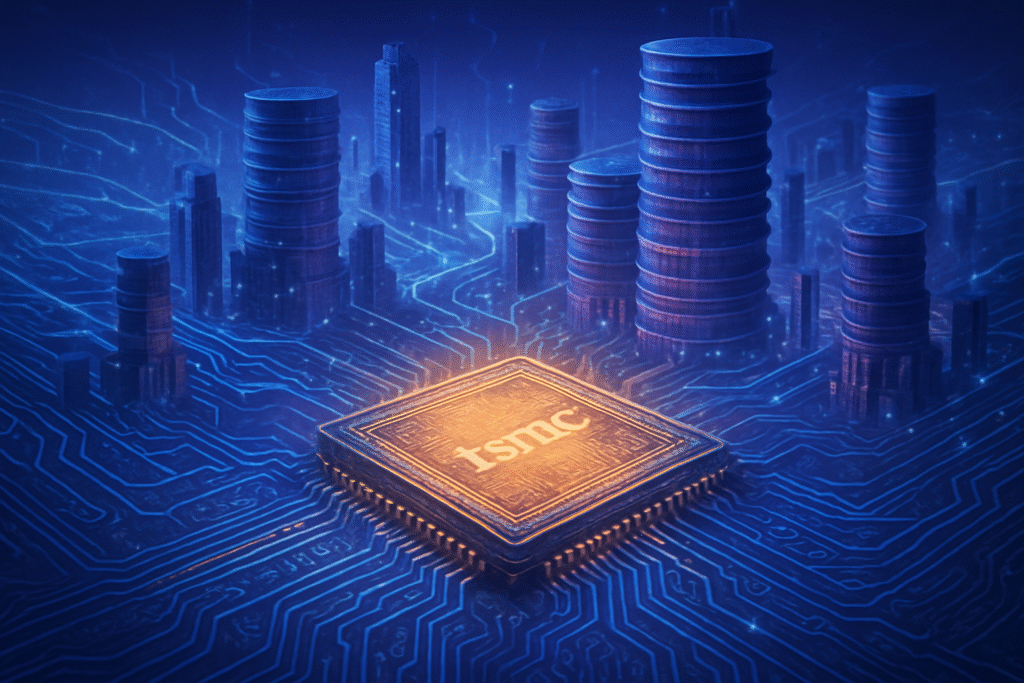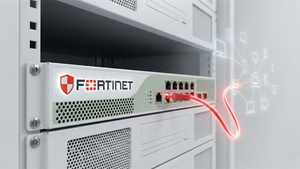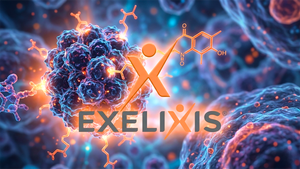
The Taiwan Semiconductor Manufacturing Company (NYSE: TSM), or TSMC, stands as an undisputed titan in the global semiconductor industry, now finding itself at the epicenter of an unprecedented investment surge driven by the accelerating artificial intelligence (AI) boom. As the world's largest dedicated chip foundry, TSMC's technological prowess and strategic positioning have made it the foundational enabler for virtually every major AI advancement, solidifying its indispensable role in manufacturing the advanced processors that power the AI revolution. Its stock has become a focal point for investors, reflecting not just its current market dominance but also the immense future prospects tied to the sustained growth of AI.
The immediate significance of the AI boom for TSMC's stock performance is profoundly positive. The company has reported record-breaking financial results, with net profit soaring 39.1% year-on-year in Q3 2025 to NT$452.30 billion (US$14.75 billion), significantly surpassing market expectations. Concurrently, its third-quarter revenue increased by 30.3% year-on-year to NT$989.92 billion (approximately US$33.10 billion). This robust performance prompted TSMC to raise its full-year 2025 revenue growth outlook to the mid-30% range in US dollar terms, underscoring the strengthening conviction in the "AI megatrend." Analysts are maintaining strong "Buy" recommendations, anticipating further upside potential as the world's reliance on AI chips intensifies.
The Microscopic Engine of Macro AI: TSMC's Technical Edge
TSMC's technological leadership is rooted in its continuous innovation across advanced process nodes and sophisticated packaging solutions, which are critical for developing high-performance and power-efficient AI accelerators. The company's "nanometer" designations (e.g., 5nm, 3nm, 2nm) represent generations of improved silicon semiconductor chips, offering increased transistor density, speed, and reduced power consumption.
The 5nm process (N5, N5P, N4P, N4X, N4C), in volume production since 2020, offers 1.8x the transistor density of its 7nm predecessor and delivers a 15% speed improvement or 30% lower power consumption. This allows chip designers to integrate a vast number of transistors into a smaller area, crucial for the complex neural networks and parallel processing demanded by AI workloads. Moving forward, the 3nm process (N3, N3E, N3P, N3X, N3C, N3A), which entered high-volume production in 2022, provides a 1.6x higher logic transistor density and 25-30% lower power consumption compared to 5nm. This node is pivotal for companies like NVIDIA (NASDAQ: NVDA), Advanced Micro Devices (NASDAQ: AMD), and Apple (NASDAQ: AAPL) to create AI chips that process data faster and more efficiently.
The upcoming 2nm process (N2), slated for mass production in late 2025, represents a significant leap, transitioning from FinFET to Gate-All-Around (GAA) nanosheet transistors. This shift promises a 1.15x increase in transistor density and a 15% performance improvement or 25-30% power reduction compared to 3nm. This next-generation node is expected to be a game-changer for future AI accelerators, with major customers from the high-performance computing (HPC) and AI sectors, including hyperscalers like Google (NASDAQ: GOOGL) and Amazon (NASDAQ: AMZN), lining up for capacity.
Beyond manufacturing, TSMC's advanced packaging technologies, particularly CoWoS (Chip-on-Wafer-on-Substrate), are indispensable for modern AI chips. CoWoS is a 2.5D wafer-level multi-chip packaging technology that integrates multiple dies (logic, memory) side-by-side on a silicon interposer, achieving better interconnect density and performance than traditional packaging. It is crucial for integrating High Bandwidth Memory (HBM) stacks with logic dies, which is essential for memory-bound AI workloads. TSMC's variants like CoWoS-S, CoWoS-R, and the latest CoWoS-L (emerging as the standard for next-gen AI accelerators) enable lower latency, higher bandwidth, and more power-efficient packaging. TSMC is currently the world's sole provider capable of delivering a complete end-to-end CoWoS solution with high yields, distinguishing it significantly from competitors like Samsung and Intel (NASDAQ: INTC). The AI research community and industry experts widely acknowledge TSMC's technological leadership as fundamental, with OpenAI's CEO, Sam Altman, explicitly stating, "I would like TSMC to just build more capacity," highlighting its critical role.
Fueling the AI Giants: Impact on Companies and Competitive Landscape
TSMC's advanced manufacturing and packaging capabilities are not merely a service; they are the fundamental enabler of the AI revolution, profoundly impacting major AI companies, tech giants, and nascent startups alike. Its technological leadership ensures that the most powerful and energy-efficient AI chips can be designed and brought to market, shaping the competitive landscape and market positioning of key players.
NVIDIA, a cornerstone client, heavily relies on TSMC for manufacturing its cutting-edge GPUs, including the H100, Blackwell, and future architectures. CoWoS packaging is crucial for integrating high-bandwidth memory in these GPUs, enabling unprecedented compute density for large-scale AI training and inference. Increased confidence in TSMC's chip supply directly translates to increased potential revenue and market share for NVIDIA's GPU accelerators, solidifying its competitive moat. Similarly, AMD utilizes TSMC's advanced packaging and leading-edge nodes for its next-generation data center GPUs (MI300 series) and EPYC CPUs, positioning itself as a strong challenger in the High-Performance Computing (HPC) market. Apple leverages TSMC's 3nm process for its M4 and M5 chips, which power on-device AI, and has reportedly secured significant 2nm capacity for future chips.
Hyperscale cloud providers such as Google (NASDAQ: GOOGL), Amazon (NASDAQ: AMZN), Meta Platforms (NASDAQ: META), and Microsoft (NASDAQ: MSFT) are increasingly designing custom AI silicon (ASICs) to optimize performance for their specific workloads, relying almost exclusively on TSMC for manufacturing. OpenAI is strategically partnering with TSMC to develop its own in-house AI chips, leveraging TSMC's advanced A16 process to meet the demanding requirements of AI workloads, aiming to reduce reliance on third-party chips and optimize designs for inference. This ensures more stable and potentially increased availability of critical chips for their vast AI infrastructures. TSMC's comprehensive AI chip manufacturing services, coupled with its willingness to collaborate with innovative startups, provide a competitive edge by allowing TSMC to gain early experience in producing cutting-edge AI chips. The market positioning advantage gained from access to TSMC's cutting-edge process nodes and advanced packaging is immense, enabling the development of the most powerful AI systems and directly accelerating AI innovation.
The Wider Significance: A New Era of Hardware-Driven AI
TSMC's role extends far beyond a mere supplier; it is an indispensable architect in the broader AI landscape and global technology trends. Its significance stems from its near-monopoly in advanced semiconductor manufacturing, which forms the bedrock for modern AI innovation, yet this dominance also introduces concerns related to supply chain concentration and geopolitical risks. TSMC's contributions can be seen as a unique inflection point in tech history, emphasizing hardware as a strategic differentiator.
The company's advanced nodes and packaging solutions are directly enabling the current AI revolution by facilitating the creation of powerful, energy-efficient chips essential for training and deploying complex machine learning algorithms. Major tech giants rely almost exclusively on TSMC, cementing its role as the foundational hardware provider for generative AI and large language models. This technical prowess directly accelerates the pace of AI innovation.
However, TSMC's near-monopoly, holding over 90% of the most advanced chips, creates significant concerns. This concentration forms high barriers to entry and fosters a centralized AI hardware ecosystem. An over-reliance on a single foundry, particularly one located in a geopolitically sensitive region like Taiwan, poses a vulnerability to the global supply chain, susceptible to natural disasters, trade blockades, or conflicts. The ongoing US-China trade conflict further exacerbates these risks, with US export controls impacting Chinese AI chip firms' access to TSMC's advanced nodes.
In response to these geopolitical pressures, TSMC is actively diversifying its manufacturing footprint beyond Taiwan, with significant investments in the US (Arizona), Japan, and planned facilities in Germany. While these efforts aim to mitigate risks and enhance global supply chain resilience, they come with higher production costs. TSMC's contribution to the current AI era is comparable in importance to previous algorithmic milestones, but with a unique emphasis on the physical hardware foundation. The company's pioneering of the pure-play foundry business model in 1987 fundamentally reshaped the semiconductor industry, providing the necessary infrastructure for fabless companies to innovate at an unprecedented pace, directly fueling the rise of modern computing and subsequently, AI.
The Road Ahead: Future Developments and Enduring Challenges
TSMC's roadmap for advanced manufacturing nodes is critical for the performance and efficiency of future AI chips, outlining ambitious near-term and long-term developments. The company is set to launch its 2nm process node later in 2025, marking a significant transition to gate-all-around (GAA) nanosheet transistors, promising substantial improvements in power consumption and speed. Following this, the 1.6nm (A16) node is scheduled for release in 2026, offering a further 15-20% drop in energy usage, particularly beneficial for power-intensive HPC applications in data centers. Looking further ahead, the 1.4nm (A14) process is expected to enter production in 2028, with projections of up to 15% faster speeds or 30% lower power consumption compared to N2.
In advanced packaging, TSMC is aggressively expanding its CoWoS capacity, aiming to quadruple output by the end of 2025 and reach 130,000 wafers per month by 2026. Future CoWoS variants like CoWoS-L are emerging as the standard for next-generation AI accelerators, accommodating larger chiplets and more HBM stacks. TSMC's advanced 3D stacking technology, SoIC (System-on-Integrated-Chips), is planned for mass production in 2025, utilizing hybrid bonding for ultra-high-density vertical integration. These technological advancements will underpin a vast array of future AI applications, from next-generation AI accelerators and generative AI to sophisticated edge AI, autonomous driving, and smart devices.
Despite its strong position, TSMC confronts several significant challenges. The unprecedented demand for AI chips continues to strain its advanced manufacturing and packaging capabilities, leading to capacity constraints. The escalating cost of building and equipping modern fabs, coupled with the immense R&D investment required for each new node, is a continuous financial challenge. Maintaining high and consistent yield rates for cutting-edge nodes like 2nm and beyond also remains a technical hurdle. Geopolitical risks, particularly the concentration of advanced fabs in Taiwan, remain a primary concern, driving TSMC's costly global diversification efforts in the US, Japan, and Germany. The exponential increase in power consumption by AI chips also poses significant energy efficiency and sustainability challenges.
Industry experts overwhelmingly view TSMC as an indispensable player, the "undisputed titan" and "fundamental engine powering the AI revolution." They predict continued explosive growth, with AI accelerator revenue expected to double in 2025 and achieve a mid-40% compound annual growth rate through 2029. TSMC's technological leadership and manufacturing excellence are seen as providing a dependable roadmap for customer innovations, dictating the pace of technological progress in AI.
A Comprehensive Wrap-Up: The Enduring Significance of TSMC
TSMC's investment outlook, propelled by the AI boom, is exceptionally robust, cementing its status as a critical enabler of the global AI revolution. The company's undisputed market dominance, stellar financial performance, and relentless pursuit of technological advancement underscore its pivotal role. Key takeaways include record-breaking profits and revenue, AI as the primary growth driver, optimistic future forecasts, and substantial capital expenditures to meet burgeoning demand. TSMC's leadership in advanced process nodes (3nm, 2nm, A16) and sophisticated packaging (CoWoS, SoIC) is not merely an advantage; it is the fundamental hardware foundation upon which modern AI is built.
In AI history, TSMC's contribution is unique. While previous AI milestones often centered on algorithmic breakthroughs, the current "AI supercycle" is fundamentally hardware-driven, making TSMC's ability to mass-produce powerful, energy-efficient chips absolutely indispensable. The company's pioneering pure-play foundry model transformed the semiconductor industry, enabling the fabless revolution and, by extension, the rapid proliferation of AI innovation. TSMC is not just participating in the AI revolution; it is architecting its very foundation.
The long-term impact on the tech industry and society will be profound. TSMC's centralized AI hardware ecosystem accelerates hardware obsolescence and dictates the pace of technological progress. Its concentration in Taiwan creates geopolitical vulnerabilities, making it a central player in the "chip war" and driving global manufacturing diversification efforts. Despite these challenges, TSMC's sustained growth acts as a powerful catalyst for innovation and investment across the entire tech ecosystem, with the global AI chip market projected to contribute over $15 trillion to the global economy by 2030.
In the coming weeks and months, investors and industry observers should closely watch several key developments. The high-volume production ramp-up of the 2nm process node in late 2025 will be a critical milestone, indicating TSMC's continued technological leadership. Further advancements and capacity expansion in advanced packaging technologies like CoWoS and SoIC will be crucial for integrating next-generation AI chips. The progress of TSMC's global fab construction in the US, Japan, and Germany will signal its success in mitigating geopolitical risks and diversifying its supply chain. The evolving dynamics of US-China trade relations and new tariffs will also directly impact TSMC's operational environment. Finally, continued vigilance on AI chip orders from key clients like NVIDIA, Apple, and AMD will serve as a bellwether for sustained AI demand and TSMC's enduring financial health. TSMC remains an essential watch for anyone invested in the future of artificial intelligence.
This content is intended for informational purposes only and represents analysis of current AI developments.
TokenRing AI delivers enterprise-grade solutions for multi-agent AI workflow orchestration, AI-powered development tools, and seamless remote collaboration platforms.
For more information, visit https://www.tokenring.ai/.




